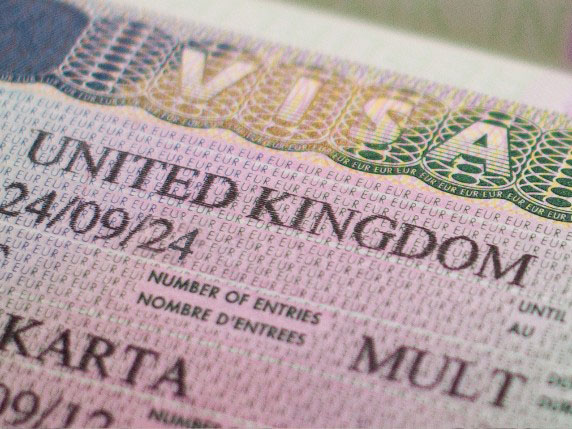There has been another recent change in the law. Please see our most recent update Sole directors DO have the power to run companies, but only in certain circumstances.
Every company formed in England and Wales is legally required to have articles of association at the time of incorporation. The articles of association govern the relationship between a company and its shareholders. They are sometimes accompanied by shareholders’ agreements, but more on that later.
So what has changed?
A recent decision of the High Court in Hashmi v Lorimer-Wing has ruled that the Model Articles for Private Companies are not suitable for sole director companies, such that they require a company to have two directors in order to run a company and make valid decisions. Companies with sole directors will need to:
- review their articles of association to make sure a sole director is empowered to run the company;
- review their articles of association to make sure any decisions the sole director has previously made and will make are valid and not void as a result of this ruling (which applies retrospectively); and
- consider if any of their previous decisions need to be confirmed/ratified.
In this High Court case, the sole director company used the Model Articles for Private Companies. The High Court ruled that the Model Articles should have been amended to provide that only one director was needed for a company board meeting to be quorate and for the decisions at meetings to be valid.
In this case the Court’s decision meant that any decisions that had been made by the sole director under the Model Articles were not valid.
Where are my company’s articles of association?
Good question. Many people incorporate a company and unknowingly tick the box to incorporate with the “Model Articles”.
There are several sets of Model Articles, which are prescribed in law for the different types of companies, and after you tick that box on incorporation, the relevant set of Model Articles is applied to your company and referenced on Companies House, even though you may not even have a copy yourself.
Model Articles are automatically applied to companies unless they are replaced by a company adopting at incorporation its own ‘bespoke’ articles of association. These bespoke articles of association may modify the Model Articles or replace them in entirety.
What do the Model Articles say?
We go into that topic in more detail in our article on why your Model Articles need to be changed, but it’s more a case of what they don’t say. The Model Articles, particularly for private companies, provide the bare minimum and very little in terms of shareholder protections.
What was the position before the case?
The Model Articles say (in Article 7(2)) that ‘if a company only has one director, and no provision of the articles requires it to have more than one director… the director may take decisions’ in respect of the company.
Article 11(2) stipulates that the quorum for a directors’ meeting ‘must never be less than two, and unless otherwise fixed, it is two’.
The industry consensus about these provisions was that:
- more than one person is needed for a meeting, so a sole director would make decisions and record them in writing;
- model article 11(2) does not require a minimum number of directors but simply sets the quorum for a board meeting if one is held, and no other provision of the Model Articles for Private Companies actually requires a company to have more than one director; and
- when a company has only one director, by virtue of model article 7(2), the general rule set out in model article 7(1) (that any decision of the directors must be either a majority decision at a meeting or a decision taken in accordance with article 8) does not apply, and the director could take decisions without regard to any of the provisions of the articles relating to directors’ decision-making, including model article 11(2).
What’s the position now after the case?
Any decision made by a sole director of a company (other than a decision to appoint further directors) which has Model Articles 7(2) and 11(2) forming part of its articles would be invalid and void. Taking such decisions would mean that the sole director has acted outside their authority. This applies to past and future decisions.
I’m a sole director with Model Articles. What do I need to do?
If you’re a private sole director company with the Model Articles for Private Companies adopted (without amendments), you need to:
- Amend your articles to allow the sole director to validly make decisions in respect of the company; and
- assess if any past decisions need ratifying.
How do I change my articles of association?
There are three main ways in which you can go about amending your articles of association:
- By adapting the wording
- By inserting entirely new wording
- By rewriting the document in its entirety to reflect the new changes
All of the above will need to be approved by a special resolution of the company’s shareholders with all documents being in the required legal form with relevant documents being filed at Companies House.
Do I need bespoke articles or a shareholders’ agreement?
Getting bespoke articles of association created for your company is now more important than ever in light of this recent High Court ruling.
Having a bespoke set of articles which are practical and align with your company and its relationship with its shareholders will help to prevent problems in the future. It doesn’t matter whether you are a small company with two shareholders or a large company with many, having bespoke articles of association in place can save you time and money in the future.
Likewise, shareholders’ agreements are becoming increasingly important to document the arrangements between a company’s shareholders.
Without bespoke articles of association and a shareholders agreement, the biggest risk to that company’s business is the company’s shareholders ‘falling out’ as the Model Articles and general law does very little to protect shareholders from the actions of other shareholders. See our article on shareholders’ agreements and what they should contain.
I haven’t formed my company yet, how do I protect myself in the future?
When incorporating into a private company later in your business journey, you should not adopt the Model Articles for Private Companies without amendment where you will only have a single director appointed.
Whether you’re an ambitious start-up, or operate an established larger company, we can offer you an affordable service plan to suit your needs. Our team can modify or draft your articles, at dramatically discounted rates. Find out about our pricing plans. If you’d like to know more about articles of association, would like help amend your Model Articles, drafting a bespoke set or would like further information about starting a company or putting in place a shareholders’ agreement, contact our team of expert corporate lawyers. Get in touch on 0800 689 1700, email us at enquiries@harperjames.co.uk or fill out the short form below or to the right with your enquiry.







